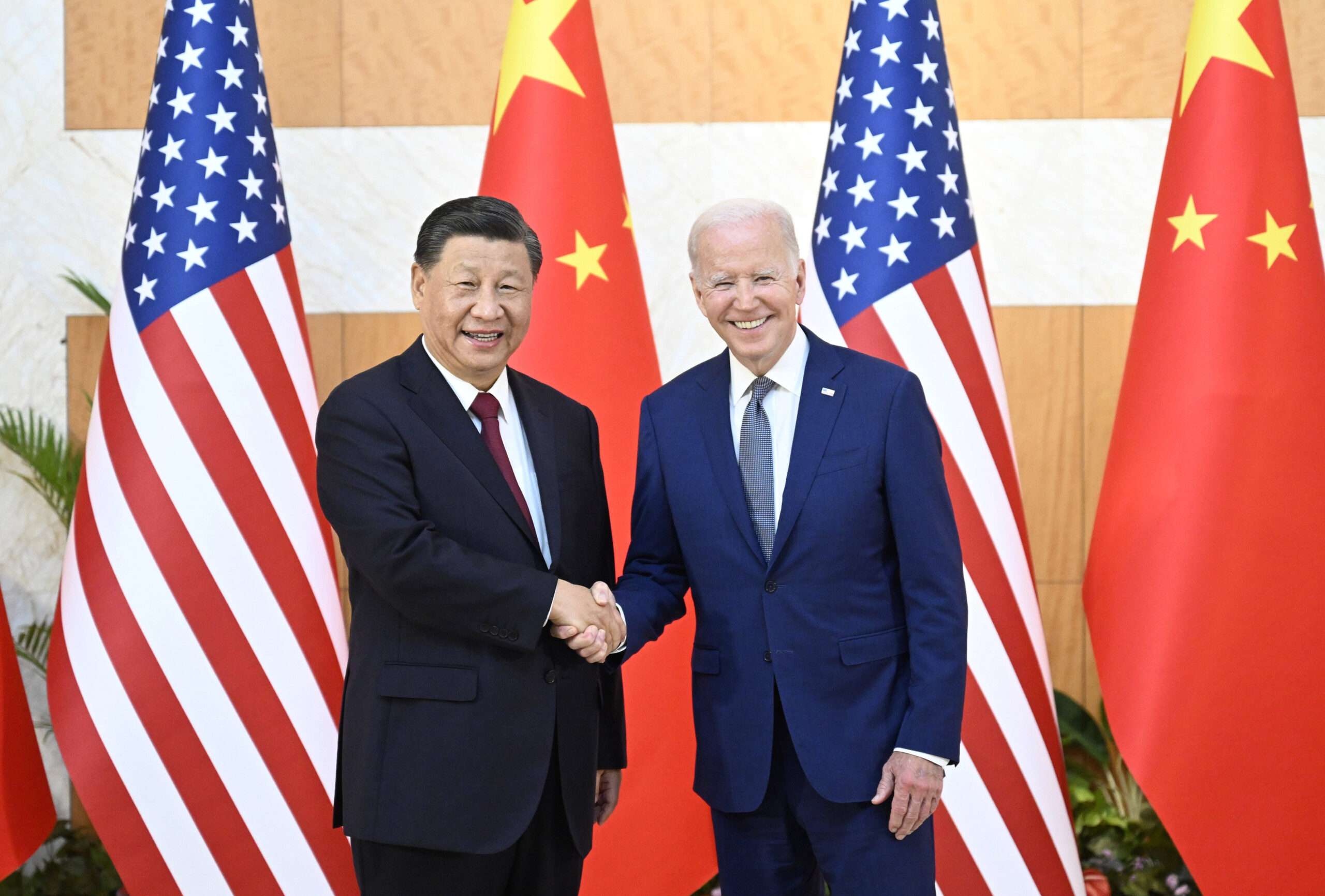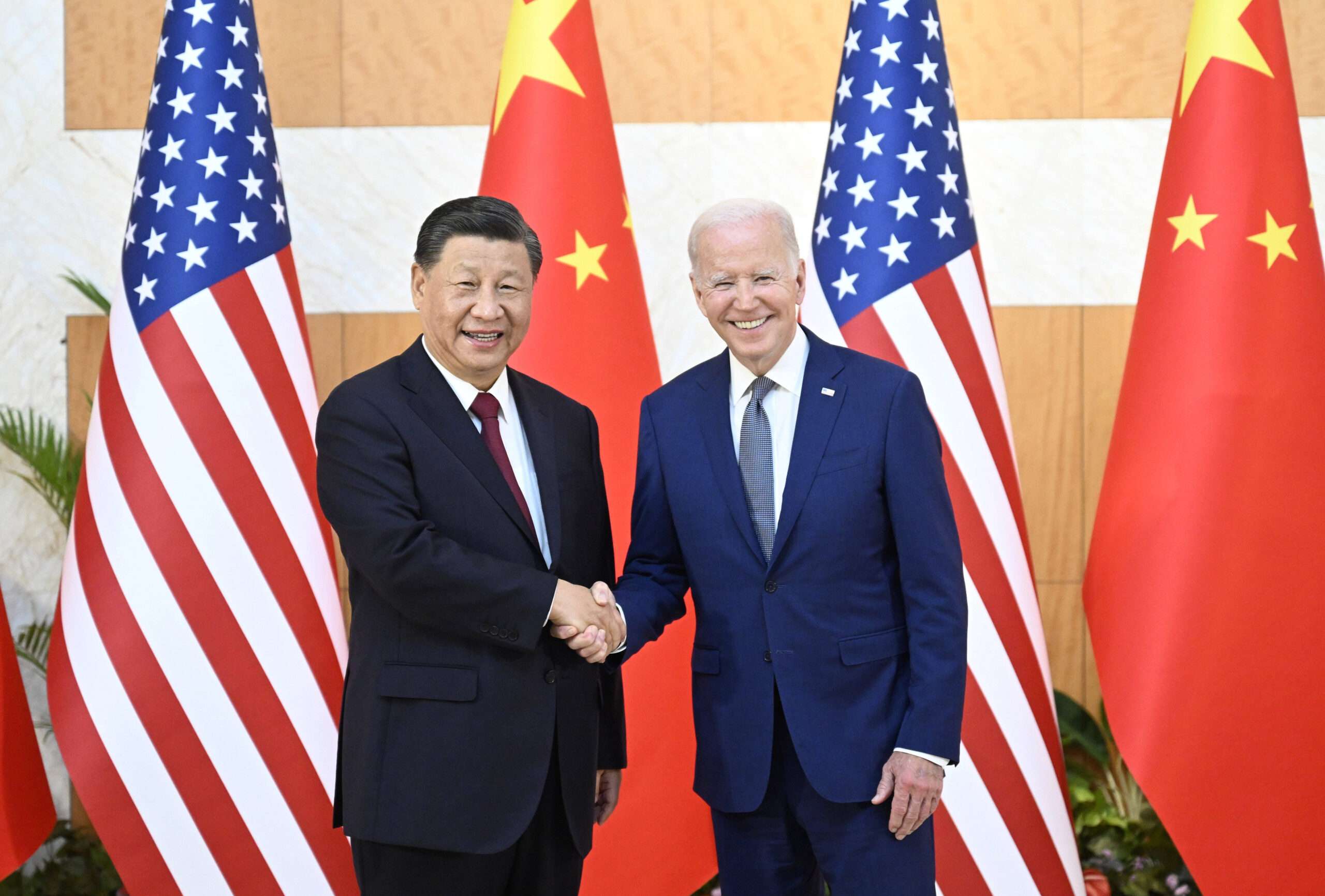
SHARM EL-SHEIKH, Egypt — China has been running a climate change con against the rest of the world for at least a decade now. The latest moves in that con took place at the G20 meeting in Bali and the COP27 United Nations climate change conference in Sharm el-Sheikh, Egypt. Here’s how the most recent round played out. Back in August, China “suspended” climate talks with the U.S. in retaliation for Speaker of the House Nancy Pelosi’s (D–Calif.) visit to Taiwan. President Joe Biden went to Bali, where he appealed to Chinese President Xi Jinping to reengage with the U.S. on climate change issues. Xi magnanimously assented.
“The U.S. side is committed to keeping the channels of communication open between the two presidents and at all levels of government” so as to “strengthen necessary cooperation and play a key role in addressing climate change, food security and other important global challenges,” according to the official Chinese government statement. “The two countries will jointly work for the success of the 27th Conference of the Parties to the United Nations Framework Convention on Climate Change.” This supposed breakthrough was widely hailed by officials and activists alike.
“I welcome today’s agreement between China and the USA to work together to take more ambitious #ClimateAction in this decade,” tweeted U.N. Secretary-General António Guterres. “This unequivocal signal from the two largest economies to work together to address the climate crisis is more than welcome; it’s essential,” Manish Bapna, president of the Natural Resources Defense Council, said to Euronews. Ani Dasgupta, president of the World Resources Institute, told The Washington Post, “I think it’s very significant, very positive.” He added, “From our perspective, not only are they the biggest emitters, but…it matters to what happens in the rest of the negotiations.”
Let’s take a brief look at previous U.S.-China climate change agreements. Back in 2014, President Barack Obama and Xi with great fanfare issued a “joint announcement” on climate change. The announcement was hailed by most environmental groups and much of the media as “historic,” a “breakthrough,” and a “game-changer.” Parsing the agreement, it turns out that China gave away nothing and just reaffirmed its previously announced goal of peaking its emissions around 2030. As it happens, futurist Brian Wang over at the NextBigFuture.com calculated in 2014 that China’s carbon dioxide emissions would increase from about 10 billion tons then to as much as 14.7 billion tons by 2020. China’s emissions are basically right on track, rising to 14.3 billion tons in 2021.
In 2015, at the U.N. climate conference where the Paris Agreement was completed, China merely reiterated its “pledge” to peak its emissions by 2030, which would likely mean that it would be emitting 60 percent more greenhouse gases by then. That’s where the state of play remained after former President Donald Trump’s withdrawal from the Paris Agreement.
After Biden reinstated U.S. participation in the Paris Agreement, his administration began seeking another joint agreement on climate with China. Subsequently, another supposed breakthrough was duly announced at the U.N.’s Glasgow climate conference last November, where U.S. climate envoy John Kerry and China’s climate negotiator Xie Zhenhua issued the U.S.-China Joint Glasgow Declaration on Enhancing Climate Action in the 2020s. In that declaration, China promised that it “will phase down coal consumption during the 15th Five Year Plan and make best efforts to accelerate this work.” The 15th Five Year plan runs from 2026–30, and that’s exactly the same promise that Xi had made earlier at the Leaders Summit on Climate convened by Biden in April 2021. The joint declaration was described as a “stage-managed nothingburger.”
By comparison, the Chinese statements from Bali promising to “keep channels of communication open” and “strengthen necessary cooperation” make a nothingburger look tasty. China’s climate change con still has at least eight years to run.

